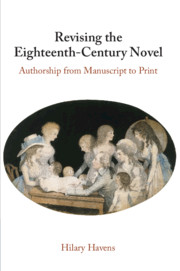Chapter 4 - Maria Edgeworth
Scientific Knowledge, Didactic Moralism, and Her “family Jury of critics”
Published online by Cambridge University Press: 19 August 2019
Summary
Chapter 4 reveals the extent of Maria Edgeworth's participation in a form of networked authorship borne out in interactions with her family, previous texts, reviewers, and readers, which can be discerned within her revisions to four of her major novels: Belinda (1801), Patronage (1814), Harrington (1817), and Helen (1834).Her post-publication revisions to Belinda and Patronage are linked, especially in the case of the latter, to her interest in scientific and scholarly knowledge and her struggle to moderate her didactic moralism.This book discusses, for the first time, an early fragmentary version of Harrington, which contained an anti-semitic first-person narrator, which was removed before publication.Edgeworth’s published version was a departure from her usual didacticism, which she attenuated once more in the 1825 edition.Her final novel Helen and her unfinished fiction Take for Granted attest to, perhaps more than any other novels in this project, their collaborative origins: they were influenced by her family and her readers at all stages of the composition process.
- Type
- Chapter
- Information
- Revising the Eighteenth-Century NovelAuthorship from Manuscript to Print, pp. 124 - 153Publisher: Cambridge University PressPrint publication year: 2019

